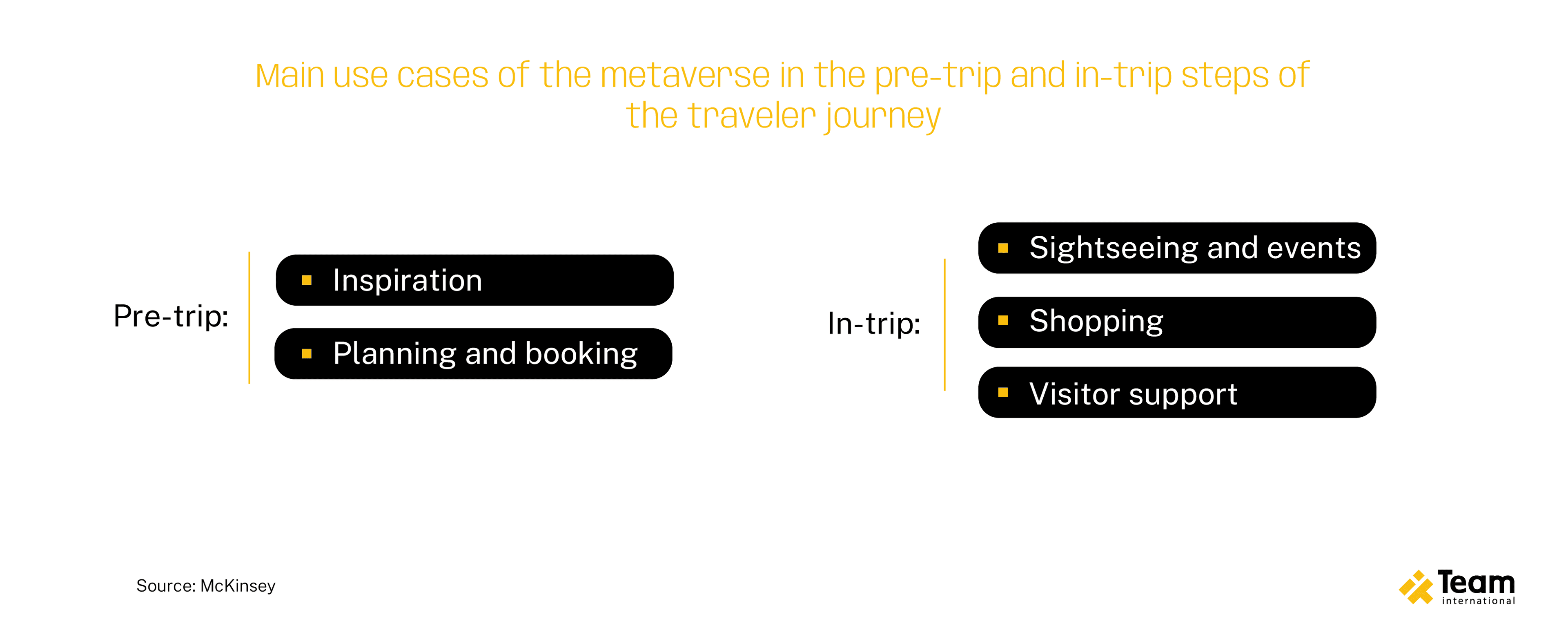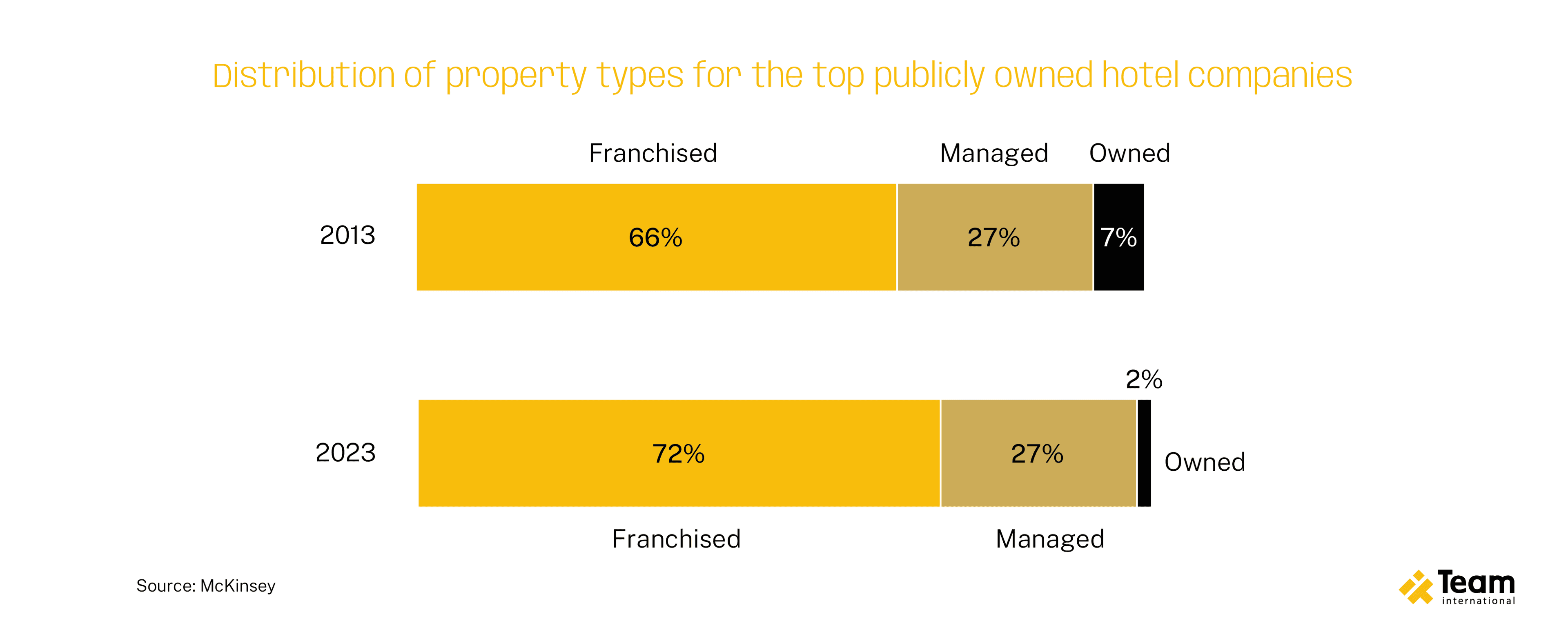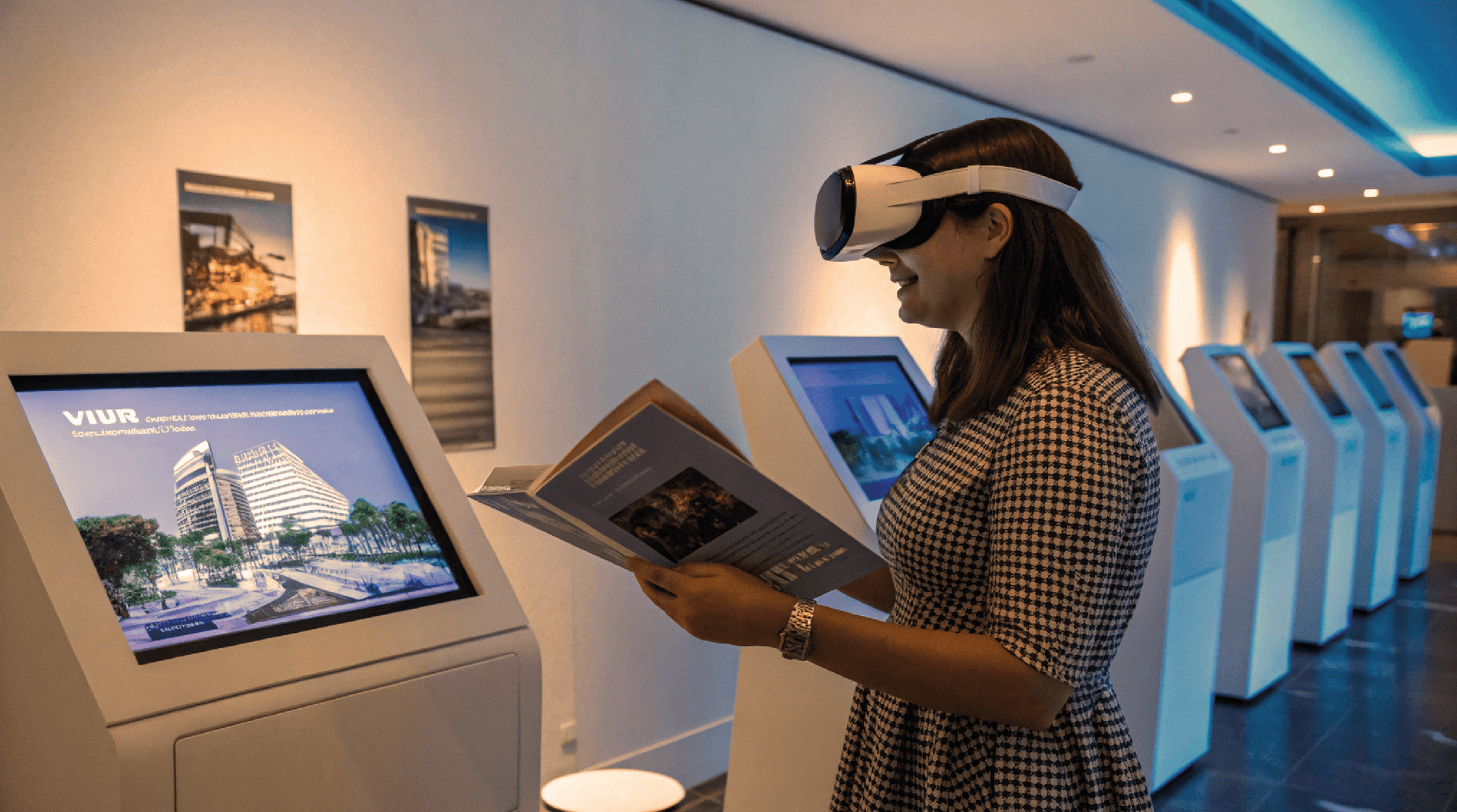Travel is no longer about simply reaching a destination; it has evolved into a fully immersive journey, from the initial planning stages to the final moments of the trip. As technology advances, consumer expectations shift, and sustainability becomes a growing priority, companies across the travel and hospitality industry are rethinking their business models to stay relevant and competitive.
The industry shows strong signs of resilience and growth despite recent global challenges, including economic uncertainty, social disruption, and post-pandemic recovery. In fact, the travel and tourism sector’s contribution to the worldwide GDP is projected to rise from $9.9 trillion in 2023 to $16 trillion by 2034. With the rapid acceleration of AI and digital innovation, the opportunities for transformation are greater than ever. Let’s explore five trends in the hospitality industry that could help future-proof your business in the coming years!
1. Metaverse of possibilities
Metaverse has been a buzzing topic of discussion over the past few years, especially during and after the pandemic. Our growing curiosity and dependence on the internet have only fueled the momentum behind this movement. McKinsey stated that by 2030, the metaverse is expected to reach a value of up to $5 trillion.
It offers a clear opportunity to experience places, attend events, and socialize with people—all from the comfort of your home. Seen as the next evolution of the web, the metaverse is shaping social spaces and emerging as a potential commercial platform for businesses. The widespread adoption of virtual reality (VR) and augmented reality (AR) will open new opportunities for virtual events and advertising, potentially generating over $20 billion in revenue by 2030. The reason behind this transition is that since 2020, and particularly following the impact of COVID-19, companies have been pushed to rethink how they deliver their services in more digital, innovative, and engaging ways.
A clear example is ZEPETO World, a Korean app launched in August 2018 that allows users to create avatars and travel virtually across the country. Players can also shop, interact with one another, and attend performances in the digital world. According to Statista, by March 2022, Naver’s metaverse had attracted 300 million users worldwide.

2. AI to enhance the traveling experience
Artificial intelligence can rapidly transform the travel and hospitality industry, creating more personalized, efficient, and memorable experiences worldwide. From discovery and inspiration to planning, booking, itinerary management, and transportation, AI streamlines every stage of the journey.
One of Gen AI’s greatest strengths is its ability to offer tailored recommendations based on travelers’ preferences, helping them design trips that truly match their expectations. Moreover, artificial intelligence can proactively anticipate potential challenges, like weather disruptions or transportation changes, offering real-time alternatives to keep journeys as smooth as possible.
While AI continues to evolve, it acts as a powerful enabler for businesses to enhance service quality, centralize data, and improve the overall customer experience. This is especially relevant as Millennial and Gen Z travelers, who are increasingly shaping the industry's future, expect seamless digital interactions and personalized experiences.
Companies that embrace technology and build a strong digital presence are becoming more attractive destinations for these tech-savvy generations, positioning themselves for long-term success in a rapidly changing market.
3. Offering a unique stay
Today’s travelers seek much more than just a place to sleep. They look for special and unique experiences, turning every stay into an essential part of their journey. Hotels and hospitality businesses are no longer resting places; they have become destinations.
Many factors can make a business stand out, such as a world-class restaurant, breathtaking views, distinctive themes, or a strong focus on wellness and lifestyle offerings. Experiences that resonate on a personal and emotional level are key decision drivers for modern travelers.
PwC highlights that “hospitality brands should reflect their guests’ aspirational self-image.” Businesses that embrace this idea by creating personalized, high-quality experiences can build deeper emotional connections with their guests, encouraging loyalty and driving long-term success. In a competitive market, offering a unique stay is no longer optional—it’s essential for standing out and leading the industry.
4. Asset-light model
Unsurprisingly, the asset-light business model (ALBM) has revolutionized many industries and continues to grow. Companies like Airbnb and Uber are prime examples of how this model has disrupted traditional markets and reshaped consumer expectations. In the hospitality industry, the asset-light approach has also gained significant traction, with major brands like Marriott and Hilton expanding their global presence by growing their franchise networks rather than owning properties directly.
More and more large hotel brands are moving away from the traditional brick-and-mortar ownership model and adopting ALBM strategies. The benefits are clear: lower capital requirements for expansion, faster scalability, higher profitability, and reduced financial risk. By focusing on brand management and partnerships, companies can achieve broader market penetration with greater agility.
However, it’s important to note that the asset-light model isn’t a one-size-fits-all solution. Luxury hotel chains, for instance, often prefer in-house ownership to maintain stricter control over the quality, service standards, and overall guest experience. Choosing the right model depends heavily on your company’s brand positioning, target market, and long-term strategic goals.

5. Data-driven strategy
Data is one of any company's most valuable assets, especially for those embracing trends like artificial intelligence agents and generative AI. Real-time data processing and analysis enable business owners to identify patterns, uncover trends, and make smarter and faster decisions that drive competitive advantage. Implementing a data-driven strategy offers numerous benefits, including:
Deeper consumer insights: Allowing your company to understand customer behavior better and create or adjust services that are more personalized to individual needs and preferences.
Resource optimization: Enabling more thoughtful planning and investment based on identifying market opportunities and emerging trends.
Dynamic pricing strategies: Adjusting prices in real-time according to market behavior, demand shifts, seasonal trends, and other key factors to maximize your revenue.
Risk prediction and mitigation: Anticipating potential risks more accurately and taking proactive measures to minimize impact.
As travel and hospitality companies navigate an increasingly competitive and fast-evolving market, effectively leveraging data assets is essential for building resilience, delivering next-gen customer experiences, and securing long-term growth.
Arising challenges of tourism
While experts project tourism to experience consistent global growth in the future, one of the industry's most pressing concerns remains the ongoing labor shortage. This issue stems from various factors, including a high concentration of informal and part-time work, long working hours, and limited labor protections, all of which make the sector less appealing as a long-term career choice.
McKinsey highlighted that the industry may require a structural overhaul to provide more attractive and sustainable employment opportunities, foster long-term talent retention, and elevate the overall quality of service. In this context, embracing digital solutions is no longer a competitive edge—it’s a strategic necessity. Tools like AI-powered travel assistants, self-check-in apps, and automated customer support via chatbots can significantly streamline your operations, reduce dependency on large staff teams, and enhance the traveler experience.
Yet, despite these challenges, the travel and hospitality industry stands on the brink of an exciting new era. Innovation is redefining how people discover, plan, and enjoy their journeys. Businesses that combine customer-centric digital solutions with meaningful, human-centered services will be best positioned to lead this transformation. As technology evolves, companies that adapt and innovate will push the industry to new frontiers.
